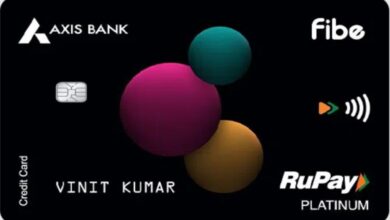Understanding credit card interest rates and fees

Credit cards are a convenient way to make purchases, but they come with their fair share of fees and interest charges. Understanding how credit card interest rates and fees work can help you make informed decisions about your credit card usage and avoid unnecessary expenses. In this article, we’ll take a closer look at credit card interest rates and fees, and what you need to know to manage them effectively.
Interest Rates Credit card interest rates can vary widely depending on the card issuer, your credit score, and other factors. The interest rate, also known as the Annual Percentage Rate (APR), is the amount of interest charged on your outstanding balance over a year. This means that if you carry a balance on your credit card, you’ll be charged interest on that balance, which can add up quickly.
It’s important to note that credit card interest is compounded, which means that interest is charged on the principal balance as well as any accumulated interest. This can make it difficult to pay off high-interest credit card debt, as the interest charges can quickly exceed the minimum payments.
To avoid interest charges, it’s best to pay your credit card balance in full each month. If that’s not possible, try to pay as much as you can over the minimum payment to reduce the amount of interest you’ll owe over time.
Fees In addition to interest charges, credit cards often come with fees that can add up quickly. Common credit card fees include:
- Annual Fees: Some credit cards charge an annual fee, which can range from a few dollars to several hundred dollars per year. These fees are typically associated with premium or rewards cards that offer additional benefits.
- Balance Transfer Fees: If you transfer a balance from one credit card to another, you may be charged a balance transfer fee, which is typically a percentage of the balance transferred.
- Cash Advance Fees: If you use your credit card to withdraw cash from an ATM, you’ll be charged a cash advance fee, which is typically a percentage of the amount withdrawn.
- Late Payment Fees: If you miss a credit card payment or pay less than the minimum amount due, you may be charged a late payment fee.
- Foreign Transaction Fees: If you use your credit card to make purchases outside of your home country, you may be charged a foreign transaction fee, which is typically a percentage of the purchase amount.
To avoid fees, make sure to read the fine print of your credit card agreement and understand what fees you may be charged. Try to pay your credit card balance in full each month to avoid interest charges, and set up automatic payments to ensure you never miss a payment.
In addition to the common fees and interest rates, some credit cards may charge other fees, such as over-the-limit fees, returned payment fees, or convenience check fees. These fees can vary from one card issuer to another, so it’s important to read your credit card agreement carefully to understand all the fees and charges associated with your card.
Another important factor to consider when it comes to credit card interest rates and fees is your credit score. Your credit score is a three-digit number that represents your creditworthiness, and it plays a significant role in determining the interest rate and fees you’ll be charged on your credit card. Generally, the higher your credit score, the lower your interest rate and fees will be.
If you have a low credit score, you may be charged higher interest rates and fees, which can make it more difficult to pay off your credit card balance. To improve your credit score, focus on making your payments on time, keeping your credit utilization low, and monitoring your credit report for errors or inaccuracies.
Finally, it’s worth noting that some credit cards offer rewards and benefits that can help offset the cost of interest rates and fees. For example, cash back credit cards offer a percentage of your purchases back as a statement credit or cash back, while travel rewards credit cards offer points or miles that can be redeemed for travel expenses.
To make the most of your credit card rewards and benefits, choose a card that aligns with your spending habits and priorities, and make sure to pay off your balance in full each month to avoid interest charges.
In conclusion, understanding credit card interest rates and fees is an essential part of responsible credit card usage. By knowing what to expect and taking steps to avoid unnecessary fees and interest charges, you can use your credit card to your advantage and build a positive credit history over time.
When it comes to credit card interest rates, it’s also important to be aware of the different types of interest rates that may apply to your account. For example, some credit cards offer a variable interest rate, which means that the interest rate can fluctuate based on market conditions or other factors. Other cards offer a fixed interest rate, which remains the same over time.
If you’re considering a credit card with a variable interest rate, be sure to read the fine print and understand how the rate can change over time. If you’re worried about fluctuating interest rates, a card with a fixed rate may be a better option.
Finally, if you’re struggling to manage your credit card debt and the associated interest rates and fees, there are several strategies you can use to get back on track. One option is to consider a balance transfer credit card, which allows you to transfer your existing credit card balances to a new card with a lower interest rate. This can help you save money on interest charges and pay off your debt faster.
Another option is to work with a credit counseling agency, which can provide guidance and support for managing your debt and improving your credit score. A credit counselor can help you create a budget, negotiate with creditors, and develop a debt management plan that fits your needs and goals.
In conclusion, credit card interest rates and fees can have a significant impact on your finances, but with a little knowledge and planning, you can manage them effectively. By choosing the right credit card, avoiding unnecessary fees, and paying off your balance in full each month, you can use your credit card to your advantage and build a strong financial future.






